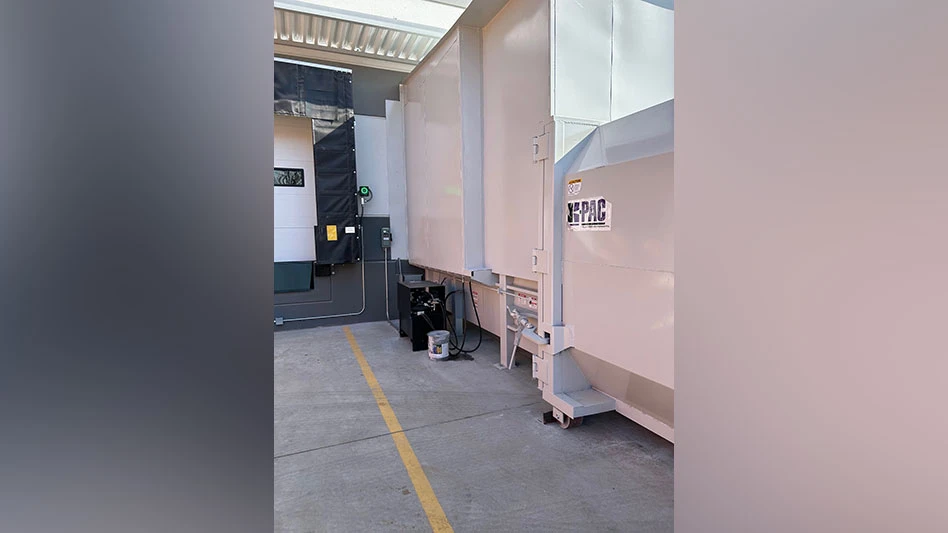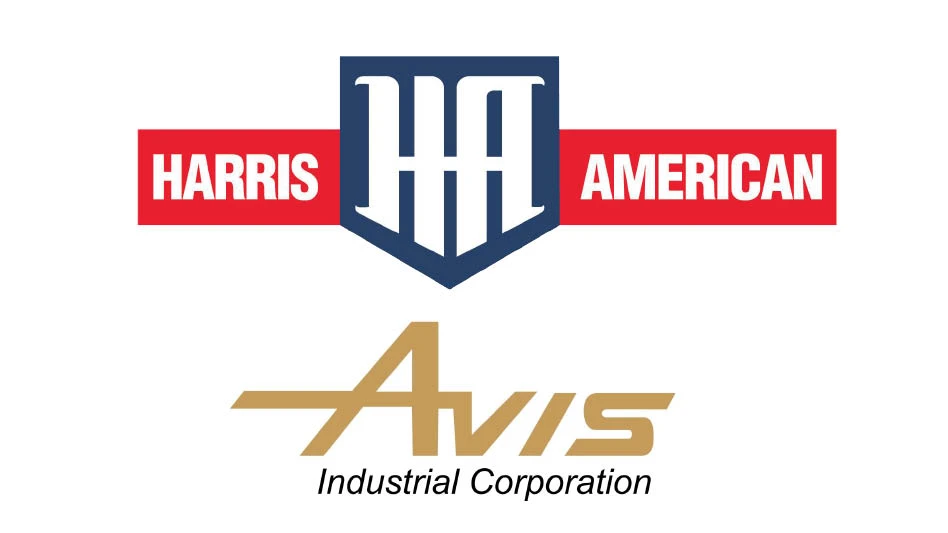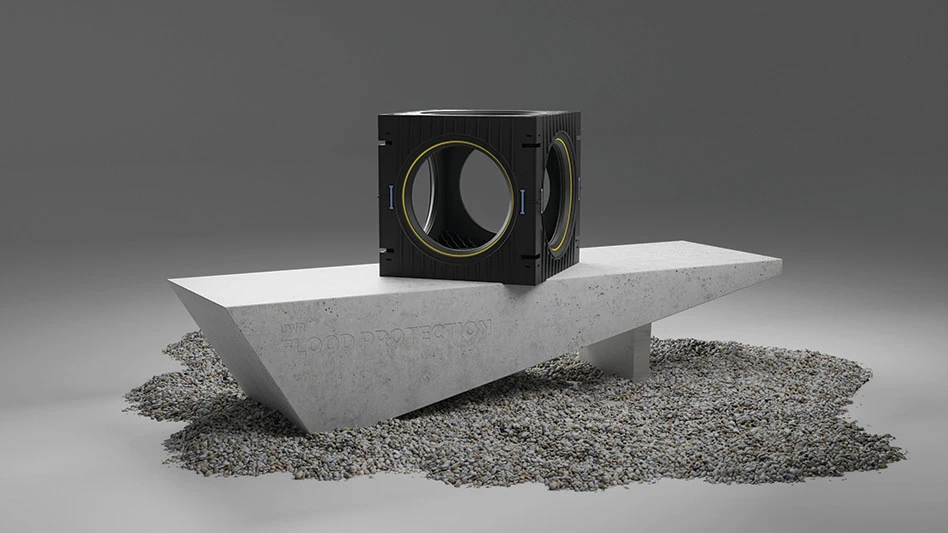
Prince William County, Virginia, along with municipalities across the country are pulling glass from single-stream collection and moving toward a purple bin drop-off program. For years, the state of Virginia has struggled with glass recycling, explains Scott MacDonald, recycling program manager, Prince William County Solid Waste Division.
“It always seems like it shouldn’t be this hard, but for whatever reason it is,” says MacDonald, who has worked in the recycling industry for 29 years. “It just seems like we need a reset for glass in Virginia.”
Glass recycling is a challenge in Virginia because the closest glass processor is in North Carolina and glass collected from curbside programs isn’t clean enough for regional manufacturers to use to make new glass bottles, MacDonald says. For this reason, Prince William recently stopped requiring haulers to collect glass, but the county is joining other jurisdictions in a pilot glass recycling program.
After attending a seminar on glass, Charles Forbes, recycling, compliance and planning, Fairfax County Solid Waste Management Program, was inspired to start the Purple Can Club, which he modeled after Kansas City, Missouri-based Ripple Glass’s purple bin glass recycling system.
With support from the county, Forbes purchased what he calls “Big Blue,” a glass crushing and screening machine, which can process 20 tons of glass per hour. Forbes helped paint unused bins purple and worked with Alexandria and Arlington County, Virginia, to set up glass only collection points with “large purple dumpsters and specialty signage in different languages intended to catch the public’s eye,” Forbes says.
While drafting the business plan, Forbes looked at how much the county spent on disposing of glass at the landfill ($69 per ton) and how much was being spent on aggregate for construction and road projects. The pilot program will recycle landfill-bound post-consumer glass into aggregate for county construction projects, Forbes says.
“We’ve got all the pieces put together and here we are,” Forbes says. “Everyone’s appetite for the project is another reason we’re standing where we are.”
In 2009, Kansas City threw away 150 million pounds of post-consumer glass, including some 10 million bottles generated by a local brewer. Boulevard Brewing founder John McDonald saw a need for glass recycling, but there was no nearby facility to process glass. With community support, McDonald created Ripple Glass, which now collects and processes glass throughout the Midwest.
“We have a purple bin program within Kansas City that we collect glass from, but we work with other cities to help them set up their own programs and ship glass in bulk for processing to Kansas City,” says Michelle Goth, Ripple Glass’s general manager.
While researching Belgium beer in Europe, Goth says McDonald noticed European countries collected glass separately and had “drop-off pods,” so “you could walk your glass to one within a block or two.” The system inspired Kansas City’s purple bin drop-off program.
“It’s been modified for America,” Goth says. “We strive to have one of our purple bins within a five-minute drive of all Kansas City residents. It’s not as convenient as having curbside collection, but hopefully its part of an errand you’re running and it’s a natural stop.”
Ripple Glass worked with a design firm early on to build the purple bin brand.
“They were very intentional,” Goth says. “They did a ton of research. They looked at what colors were used for what things. They found purple was largely unused. They wanted to pick a color that would stand out.”
She adds, “More than Ripple Glass, folks know the purple bin. They’ll say, ‘I take my glass to the purple bin.’”
Ripple constructed a glass processing plant, which processed more than 40,000 tons of glass last year. The glass is used by manufacturers, such as Owens Corning, to make fiberglass insulation and new glass bottles.
Ripple has grown from collecting 9,000 tons of glass per year from a few Missouri towns to collecting glass from more than 100 communities within a “nine-state range,” including Nebraska, South Dakota and Oklahoma. Ripple services the multiple states through its “small network of haulers,” Goth says, which keeps transport costs low for municipal and commercial partners.
“It’s largely dependent on truck availability,” she explains. “There’s not an exact science to it. If there’s a truck headed into the area on its way back to Kansas City, we can schedule a pickup.”
Goth suggests that if municipalities want to start their own glass recycling program, they first need to understand the needs of the end market manufacturers and tailor the program to support the partnership.
Fairfax County has distributed purple bins to Alexandria and Arlington County. The county collected and processed its first load of glass in March. Forbes envisions the program growing to serve all municipalities in Northern Virginia and for people to know “that’s glass only when they see a purple can.”
Prince William County has set up purple bins at two recycling centers. MacDonald says his long-term vision is to work with bottle manufacturer Owens-Illinois Glass Company and to develop partnerships with the more than 200 wineries in the region to recycle post-consumer glass into new glass bottles.
“We have a potential place for the glass to go,” MacDonald says.
Get curated news on YOUR industry.
Enter your email to receive our newsletters.
Latest from Recycling Today
- Combined DRS, EPR legislation introduced in Rhode Island
- Eureka Recycling starts up newly upgraded MRF
- Reconomy Close the Gap campaign highlights need for circularity
- Nickel carbonate added to Aqua Metals’ portfolio
- EuRIC, FEAD say End-Of-Life Vehicle Regulation presents opportunity for recyclers
- Recyclers likely to feel effects of US-China trade war
- BCMRC 2025 session preview: Navigating battery recycling legislation and regulations
- Yanmar Compact Equipment North America appoints new president






